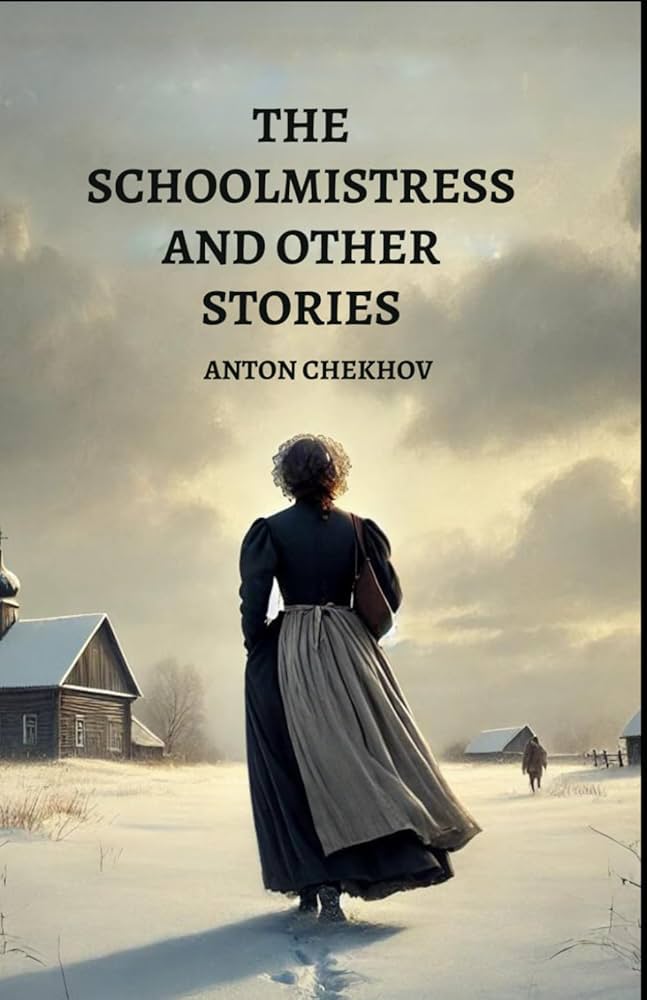AFTER THE THEATRE
byAfter the Theatre opens with Nadya Zelenin stepping into the cold night air, her thoughts still lost in the echoes of the opera she had just seen. The emotions stirred by “Yevgeny Onyegin” settle into her like a dream she doesn’t want to wake from. The world feels richer, more meaningful, every shadow more poetic. Her mind latches onto Tatyana’s sorrow, and she feels a thrill in imagining herself as a girl fated to suffer for love. This imagined melancholy draws her closer to the idea of being noble and tragic, which in her young heart feels desirable. Upon returning home, she lights a lamp, finds paper, and begins a letter not to anyone real, but to the emotions she doesn’t yet fully understand. The letter becomes an outpouring of longing—crafted with deliberate sorrow, drawn from borrowed sentiment, yet felt with the sincerity of youth.
Nadya addresses the letter with passion, imagining it meant for either Gorny or Gruzdev, young men who have shown her some attention. Though she doesn’t truly love either of them, she finds power in writing as if she does. This performance allows her to indulge in feelings she wants to feel—devotion, despair, beauty found in heartbreak. She writes about sorrow as if it’s something noble to wear, something that could define her in the most graceful way. Her declaration of becoming a nun or ending her life isn’t rooted in real suffering but in the grandeur of imagined tragedy. The letter reflects not what she experiences, but what she yearns to believe about herself and the world. It’s a testament to the way youth sometimes practices feeling deeply before understanding what depth really means.
Moments later, the mood changes entirely. The letter that once made her weep now brings a smile, then laughter. Her sorrow evaporates not through healing, but through boredom with the role she was playing. She places the letter aside, suddenly unconvinced by her own words. The sadness was never anchored in reality—it was a costume she wore and now removes. Nadya walks to her mirror and smiles at her reflection, aware that she is still the heroine of her own imagined story, just in a different chapter. This emotional swing is not uncommon in adolescence, where emotions feel truer when dramatic, but vanish quickly when no longer fed by imagination.
Her shifting feelings highlight a core part of growing up—the tendency to mimic what we think we should feel rather than exploring what’s truly in our hearts. Nadya’s joy by the end is not caused by love returned, nor sorrow overcome. It’s simply a release from the weight of a fantasy that no longer satisfies. Her laughter is both light and revealing. She doesn’t need to be in love to write of despair; she only needs to believe she’s playing the part well. But what she writes might someday become real. This moment, then, becomes a rehearsal for a more serious future. One day, perhaps, she will write not for art, but because she cannot hold back real emotion.
“After the Theatre” captures the innocence and volatility of a young mind discovering the joy and power of emotion through literature and imagination. Nadya is not foolish, only untested. Her love of opera and romance reflects a sincere desire to understand herself and her place in the emotional world. She sees in tragedy a kind of beauty, a way to matter more deeply. Chekhov does not mock her for this. Instead, he paints her with gentle clarity—as someone who is learning that feeling something, even for pretend, can still leave a mark. Through Nadya, we are reminded that everyone must first act out love before truly understanding what it means to live it.

